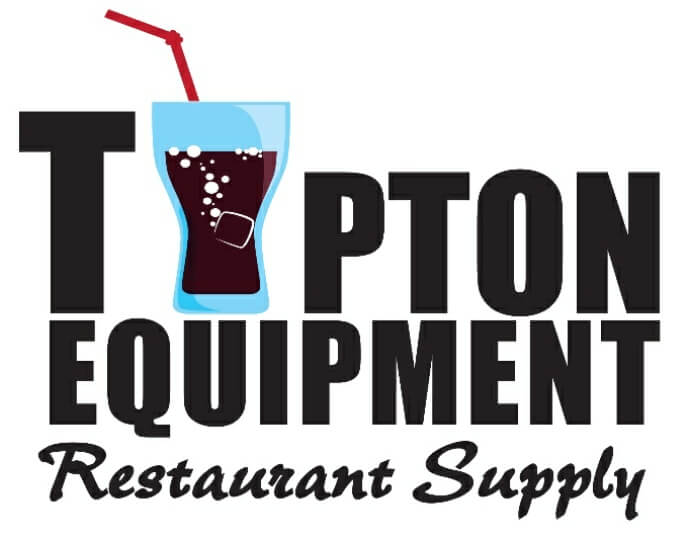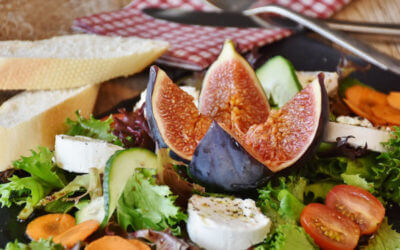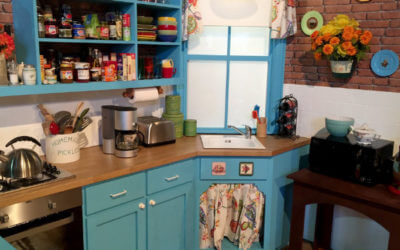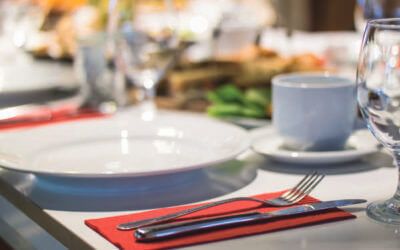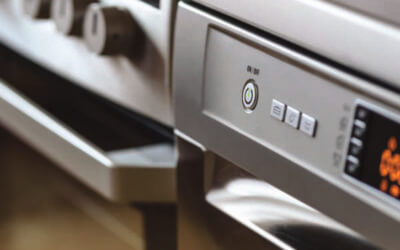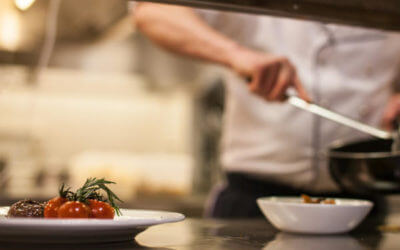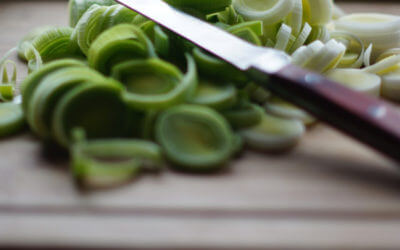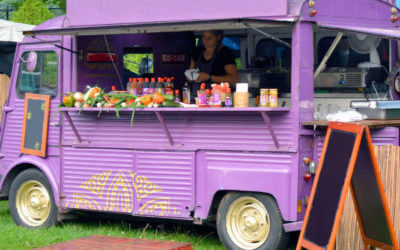What’s in a Cooking Pot? How to Choose the Right One
March 19, 2018As a restaurant owner, your cooking needs might vary.
Did you know that a good quality pot can greatly improve your cooking experience, while also improving the quality of your cooking? This cooking equipment is a very important one that cannot be done away with despite all of the advancements in technology.
Rather than purchasing many different sizes, shapes and kinds of this cooking equipment, a few carefully selected pieces might be all you need. Consider a few important tips to keep in mind when shopping for a quality pot.
Size
Size is a very important factor when selecting any cooking equipment. It is thus important that you are decided on size before you begin shopping. Keep in mind that pots vary wildly in size, generally ranging from 6 to 20 quarts for residential usage. However, as a restaurant owner serving a large customer base you might seek a bigger version of this cooking equipment, and you’d be sure to find those above 20 quarts if needed. But pots 12 quarts and above should do. Note that as a pot gets larger it is also likely to get heavier – depending on the pot material.
Materials
As with every cooking equipment, the materials from which pots are made play a huge role in their ease of use and specific functional applications. Consider a few:
Stainless steel: Smooth, shiny surface metal for easy visibility. It is a poor heat conductor, but it also is entirely nonreactive to any food type and very durable. It is also a very versatile cooking equipment for many food types.
Aluminum: They heat faster than stainless steel, and are usually very lightweight, but they also require more care and are more difficult to clean and maintain due to their ability to interact with foods that are acidic, alkaline, and sulfurous.
Copper: A great heat conductor, copper heats quickly and is warm on the eye. It is also highly reactive with food – interacting poorly with acidic and alkaline foods, but will last you if the pots are lined and you polish it often enough.
Non-stick Coating: High resistance to heat and abrasion, and useful for solid foods with high sticking possibility.
Cast iron: Heats up slowly but retains heat for long. It needs regular drying and oiling to keep it safe but that can be solved by purchasing one with enamel coating.
Shape
This cooking equipment comes in a variety of shapes. While they are conventionally tall and narrow, pots particularly designed for cooking soups are usually short and wide to allow for easy stirring. Wide pots, though, do not evenly spread heat around due to their large bases, while narrow pots are usually more consistent with their heat spread due to their narrow base.
Handles and Lids
As a restaurant owner, you would probably be needing this cooking equipment to not only serve you well on the stove but to also be heatproof for oven use. While you are likely to seek out handles that do not retain heat, such as plastic and wooden handles, these handles may have issues with heat. In this case, stainless steel handles are best for you. Properly welded handles might also serve you longer than riveted ones.
Construction
Pots with thick and heavy bases transfer heat at a much slower rate than thinner pots. These kind of pots are great for long, slow cooking. When this kitchen equipment has a thick base, it prevents ingredients from sticking to the bottom of pots. Pots with composite builds – whether these are all-clad composite pots or base insert composite pots – are also better at transferring heat evenly through a pot.
Choosing the right cooking equipment for you can feel overwhelming at times. But it shouldn’t be. Consider the types of food you’ll be cooking and the pots that will best satisfy these needs, also consider your budget (this cooking equipment can get really expensive when it becomes more specialized and advanced) when selecting the right one for you.
Roast: What’s Wrong With The Honeymooner’s Kitchen? Kitchen Supplies
Welcome to our new series, “Roast and Toast”! Each month we’ll feature one kitchen that we love and one that… well, could use improvements. The kitchens we feature can come from anywhere – TV, films, popular culture, you name it. We’ll talk about what we love and what...
Restaurant Supplies: The Growing Menu Role of Specialty Cheeses
As a commercial restaurant owner or manager, you might wonder what you can do to revive your menu a bit. There are a lot of fun ways to diversify your menu, but one trend you might have noticed is the growing role of specialty cheeses. We’ve all used common cheeses,...
It’s a Toast: Why We Love the “Friends” Kitchen
Welcome to our new series, “Roast and Toast!” Each month we’re going to feature one kitchen we love and one kitchen we hate. It can be from anywhere – a sitcom, a cooking show, a cartoon, a movie, or any other screen you’d see one on! We’re starting off with a toast...
Ready to Open a Second Restaurant Location?
If your current restaurant is booming, it might be time to consider a second location. Congratulations on your current success – you’ve already beaten the odds! Opening a second location can be easier than your first one – you’ve already worked out a lot of the kinks....
The One Product to Boost Convenience Store Sales
Is there one product that can single-handedly make or break the success of your convenience store? A lot of store owners would say no. When they look at their store, they see products coming from hot dish foodservice equipment, shelves, and a variety of categories...
Restaurant Equipment Spotlight: Gas vs. Electric
Does your Little Rock restaurant use gas or electric restaurant equipment? In all likelihood you made this decision a long time ago, but it’s one that can always be reconsidered. There are benefits to both. If you’re opening a new restaurant location, it’s vital to...
Restaurant Equipment: Self-Ordering Technology
One of the biggest challenges of running a restaurant is keeping up with all the technology and restaurant equipment that is available. You might have thought when you opened your location that you could run things basically the same way for decades. While they may...
Four Tips to Opening a Successful Restaurant
Have you been dreaming about bringing your food expertise to the forefront of you life? Many people have thought about opening their own restaurant. Folks don’t follow through for a variety of reasons – money, fear, or simple inertia. You can be different, though. You...
The Case for Timeless Restaurant Décor
What’s the newest trend in restaurant décor? Evidently, people are loving “Millennial pink,” and they’re using it for everything. If you’re trying to keep up with what’s hot, you better get some new restaurant supplies right away! And remember, this isn’t just any...
Deep Fry Safely & Efficiently
When it comes to kitchen equipment, knowing how to use it correctly is vital. Not only does it keep your employees safe, it ensures that the food comes out well and that your equipment last a long time in good condition. Using a deep fryer may seem pretty simple, and...
Should You Buy Closeout Restaurant Supplies?
As a restaurant owner, you, of course, want to save money in any way possible. Restaurant margins are known for being razor-thin, so every dollar counts. Because of this, you might be tempted when you see a closeout deal for restaurant supplies. After all, you can get...
Choosing Environmentally Friendly Restaurant Supplies
There’s been a lot of controversy recently about restaurant supplies and how they affect the environment. The current focus is on plastic straws, but the same conversation has been had about Styrofoam and a variety of other materials. Can you choose environmentally...
Restaurant Supplies to Prepare Your Location for Spring
In March you can begin to feel warmer weather around the corner here in Little Rock. After all, the groundhog didn’t see its shadow this year, so we’re in for an early spring, right? As you think about how to prepare your restaurant for spring, think about getting the...
Proper Use of Cutting Boards
Food safety is vital to every restaurant – consistent inspections make sure of it! Unfortunately, the day-to-day operations can sometimes mean that safety falls through the cracks. One thing that can get overlooked in a busy kitchen is the safe use of cutting boards....
Four Myths About Food Trucks
You probably know that the food truck industry is booming – it’s grown by 7.3% in the last five years and shows no signs of slowing down. That makes it an attractive industry for anyone interested in serving food – from established restaurants to new entrepreneurs....
